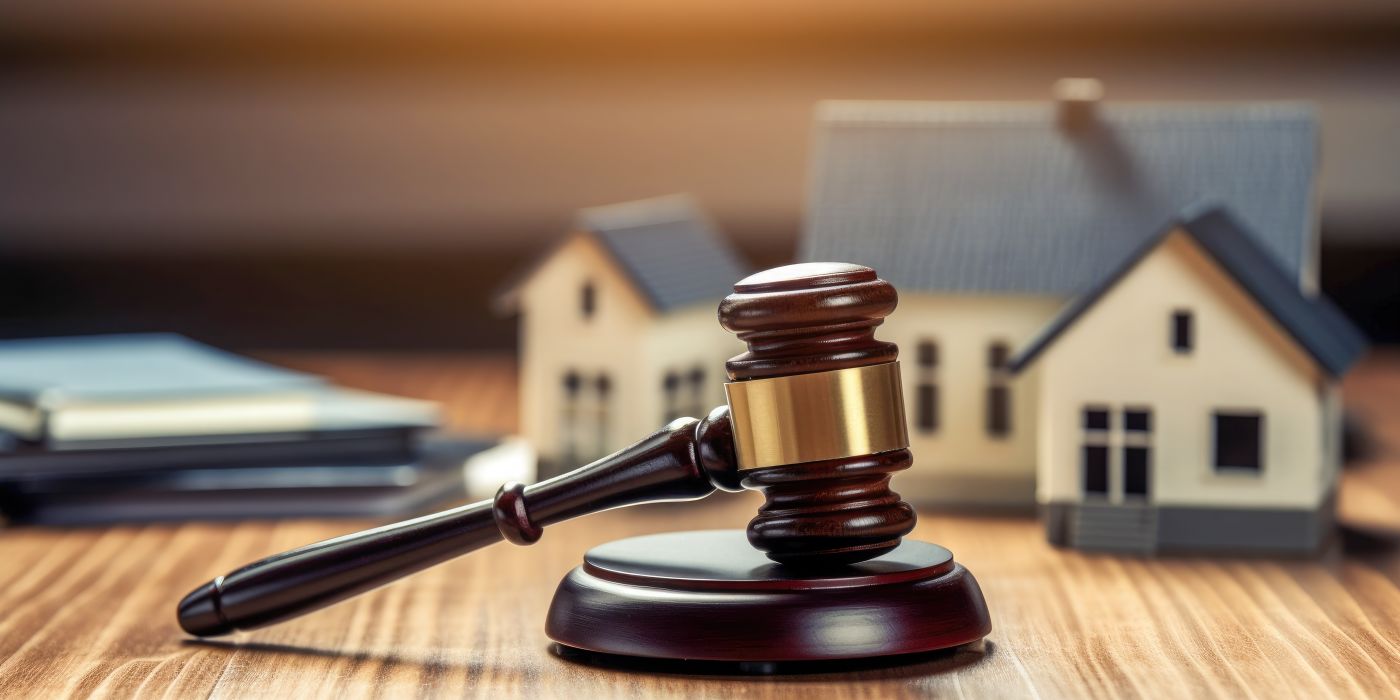
Real estate disputes can arise from various issues, impacting buyers, sellers, landlords, and tenants alike. At Skoog Law, based in Wadena, Minnesota, we’ve helped clients address and resolve these challenges with practical legal strategies.
Grant Skoog and our firm focus on providing reliable guidance to individuals and businesses facing real estate conflicts.
Whether you’re reconciling a purchase agreement dispute or addressing a landlord-tenant issue, understanding the common legal problems in real estate can help you approach the situation with clarity and confidence.
Causes of Real Estate Disputes
Real estate disputes occur when disagreements arise regarding property transactions, ownership, usage, or agreements. These disputes often require a thorough understanding of property laws and contractual obligations.
Common causes of real estate disputes include:
Breach of contract: Disagreements over purchase agreements or lease terms can lead to disputes when one party fails to meet their obligations.
Boundary disputes: Property lines can become a point of contention, especially when unclear deeds or encroachments are involved.
Landlord-tenant conflicts: Issues such as lease violations, property damage, or unpaid rent often result in disputes.
Title defects: Problems with property ownership, such as undisclosed liens or fraudulent titles, can create significant legal challenges.
Construction defects: Disputes may arise over substandard work or unmet construction standards in new builds or renovations.
Addressing these issues early is essential to prevent prolonged litigation and financial losses.
Contractual Disputes in Real Estate
Contracts are at the heart of most real estate transactions. When one party fails to uphold their part of the agreement, disputes are likely to follow.
A purchase agreement outlines the terms of a real estate sale. Breaches may occur in the following situations:
The buyer defaults: Failure to secure financing or fulfill payment obligations.
The seller defaults: Refusal to transfer the property as agreed.
Misrepresentation: False claims about the property’s condition or features.
Resolving Contractual Disputes
Resolution often involves negotiation or mediation to avoid lengthy court proceedings. Key steps include:
Reviewing the agreement: Identifying the specific terms that were violated.
Documenting the breach: Collecting evidence of non-compliance or misrepresentation.
Seeking legal advice: Consult a legal professional to determine your rights and options.
By addressing breaches proactively, parties can often resolve them without escalating the conflict further.
Property Ownership Issues
Ownership disputes can create significant legal and financial hurdles, often requiring intervention to establish rightful ownership.
Title Disputes
Title disputes arise when there’s uncertainty or disagreement over property ownership. Common causes include:
Undisclosed liens: Debts tied to the property that weren’t disclosed during the sale.
Forgery or fraud: Falsified documents or fraudulent claims of ownership.
Errors in public records: Mistakes in property records that affect ownership.
Easement Conflicts
Easements grant one party the right to use another’s property for a specific purpose. Disputes can occur when:
Terms are unclear: Ambiguities in the agreement lead to misunderstandings.
Property use changes: The easement’s intended purpose no longer aligns with the current use.
Resolving Property Ownership Disputes
Resolving ownership disputes often involves quiet title actions, title insurance claims, or legal intervention to clarify and protect property rights.
Ownership disputes can be emotionally taxing, as they often involve personal or sentimental ties to the property in question. Engaging a knowledgeable attorney early in the process can help mitigate these challenges, providing clarity and a sense of direction.
Landlord-Tenant Disputes
The landlord-tenant relationship can be a frequent source of real estate conflicts, particularly when expectations or obligations aren’t met.
Common issues in landlord-tenant disputes include:
Lease violations: Failure to comply with lease terms, such as subletting without permission.
Maintenance and repairs: Disputes over who is responsible for property upkeep.
Security deposits: Disagreements regarding the return or withholding of security deposits.
Evictions: Disputes arising from a landlord’s attempt to remove a tenant, often due to unpaid rent or property damage.
Resolving Landlord-Tenant Disputes
Effective communication and adherence to state laws are crucial in resolving landlord-tenant disputes. Steps include:
Reviewing lease agreements: Understanding the terms and conditions both parties agreed to.
Documenting incidents: Maintaining records of property damage, complaints, or communications.
Seeking mediation: Engaging a neutral party to help find a mutually agreeable solution.
Minnesota’s landlord-tenant laws provide a structure for addressing these disputes, making sure both parties are treated fairly.
Construction and Development Disputes
Construction and development disputes can arise in residential and commercial real estate projects, often involving contractors, developers, or property owners.
Common causes of disputes include:
Substandard work: Failure to meet agreed-upon quality standards.
Project delays: Missed deadlines impacting property use or income.
Payment issues: Disagreements over contractor payments or budget overruns.
Zoning violations: Failure to comply with local zoning regulations or permits.
Resolving Construction Disputes
Resolution strategies often include:
Inspection and documentation: Evaluating the work against contractual standards.
Engaging experts: Involving construction professionals to assess quality and compliance.
Legal intervention: Filing claims or pursuing arbitration when negotiations fail.
Timely action can help mitigate financial losses and verify accountability in construction projects.
Construction disputes often stem from misaligned expectations. Clear communication from the outset of a project, combined with detailed contracts, can prevent many issues from escalating. When disputes arise, swift action supported by thorough documentation is essential.
Boundary and Easement Disputes
Boundary and easement disputes often involve disagreements between neighbors or property owners about property lines and usage rights.
These disputes can arise from:
Encroachments: When a structure or feature crosses property lines.
Unclear property lines: Discrepancies between deeds and physical markers.
Resolving Boundary and Easement Disputes
Boundary disputes can be addressed by:
Surveying the property: Obtaining an updated property survey to clarify boundaries.
Negotiating agreements: Reaching an understanding with the other party to avoid litigation.
Legal action: Pursuing a court ruling if negotiations fail.
Easement disputes can be addressed by:
Clarifying terms: Reviewing the easement agreement for intended use and restrictions.
Mediation or arbitration: Working with a neutral third party to resolve disagreements.
Litigation: Seeking a legal resolution when other methods are unsuccessful.
These disputes often benefit from professional guidance to protect property rights and maintain neighborly relations.
How Skoog Law Can Help With Real Estate Disputes
Legal counsel plays a pivotal role in addressing real estate disputes, offering guidance and representation tailored to your specific situation.
At Skoog Law, we provide support in:
Contract review and negotiation: Making sure agreements are clear, enforceable, and fair.
Dispute resolution: Representing clients in negotiations, mediation, or litigation.
Property rights protection: Clarifying ownership and addressing title or boundary issues.
Our firm’s commitment to serving the Wadena, Minnesota, community includes providing practical solutions to real estate challenges.
Proactive Steps to Avoid Real Estate Disputes
While disputes can’t always be avoided, proactive measures can reduce the likelihood of conflicts. Consider these strategies:
Draft clear agreements: Use detailed contracts to define responsibilities and expectations.
Conduct thorough due diligence: Research property history, zoning regulations, and title status before transactions.
Maintain open communication: Foster clear and respectful communication with all parties involved.
Taking these steps can help prevent disputes and protect your interests in real estate transactions.
Resolve Your Real Estate Disputes With Skoog Law
Real estate disputes can be challenging, but with the right support, they don’t have to be overwhelming. Grant Skoog at Skoog Law, based in Wadena, Minnesota, is here to help you address property conflicts and find effective resolutions. In addition to real estate matters, our firm offers services in contract law, property disputes, and business conflicts.
Contact us today to discuss your legal needs and secure peace of mind.

